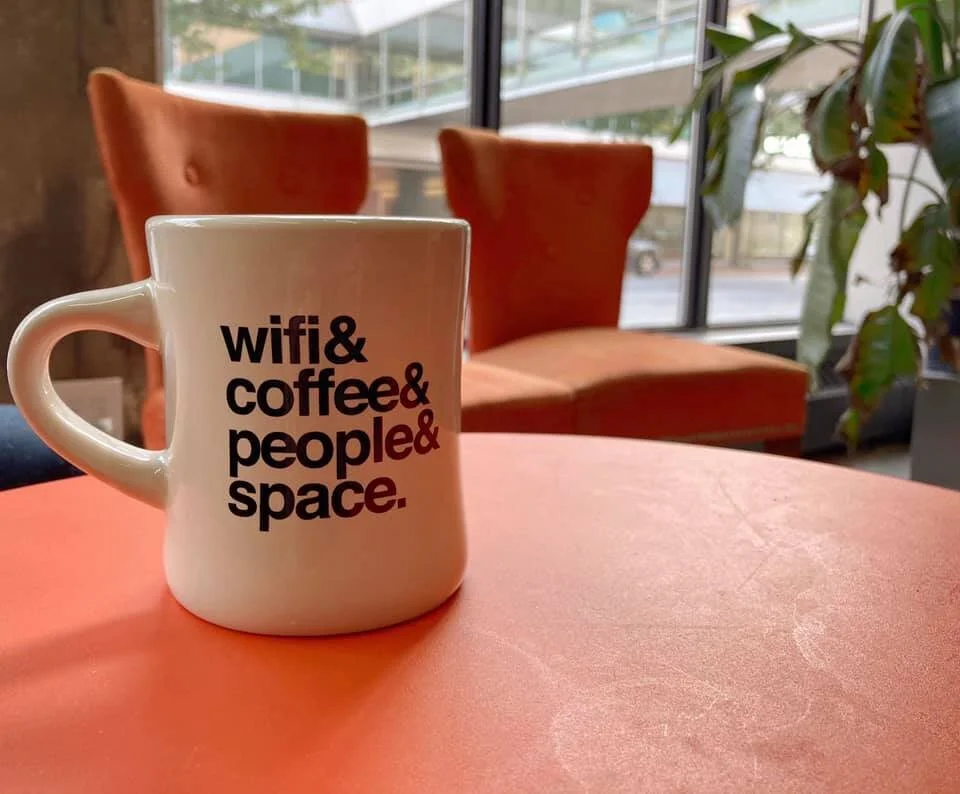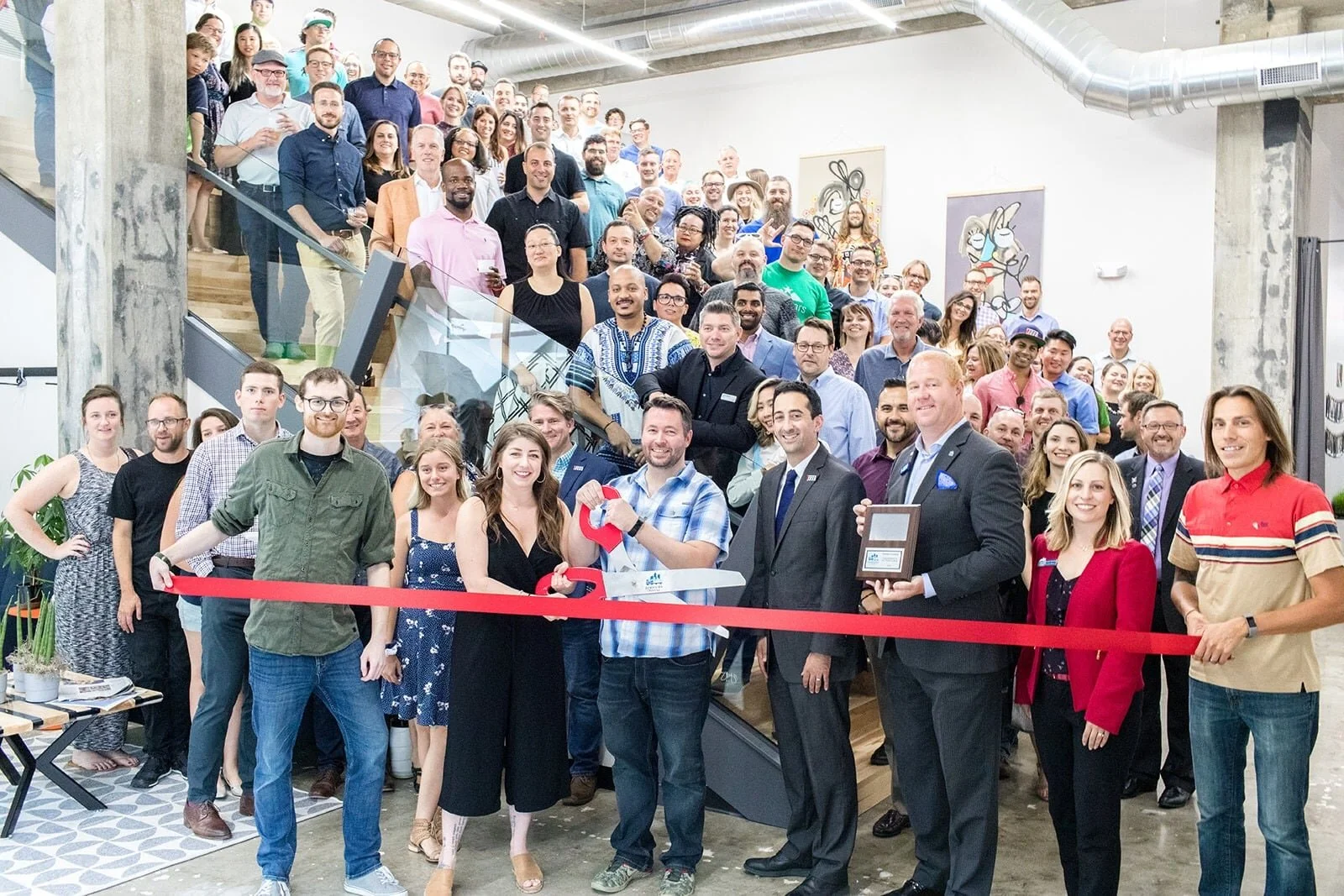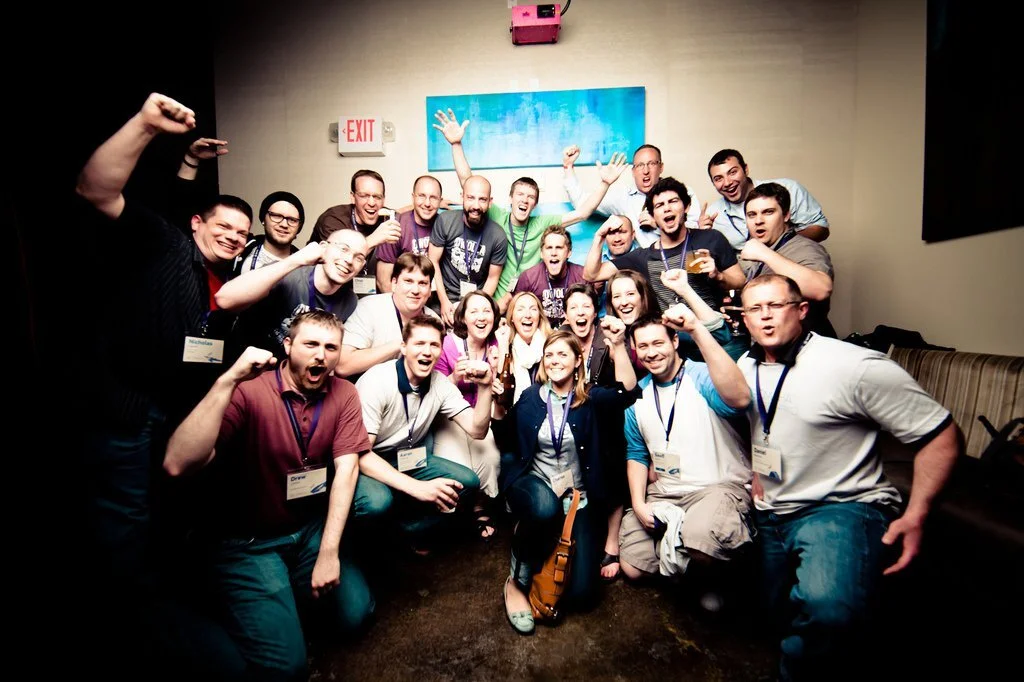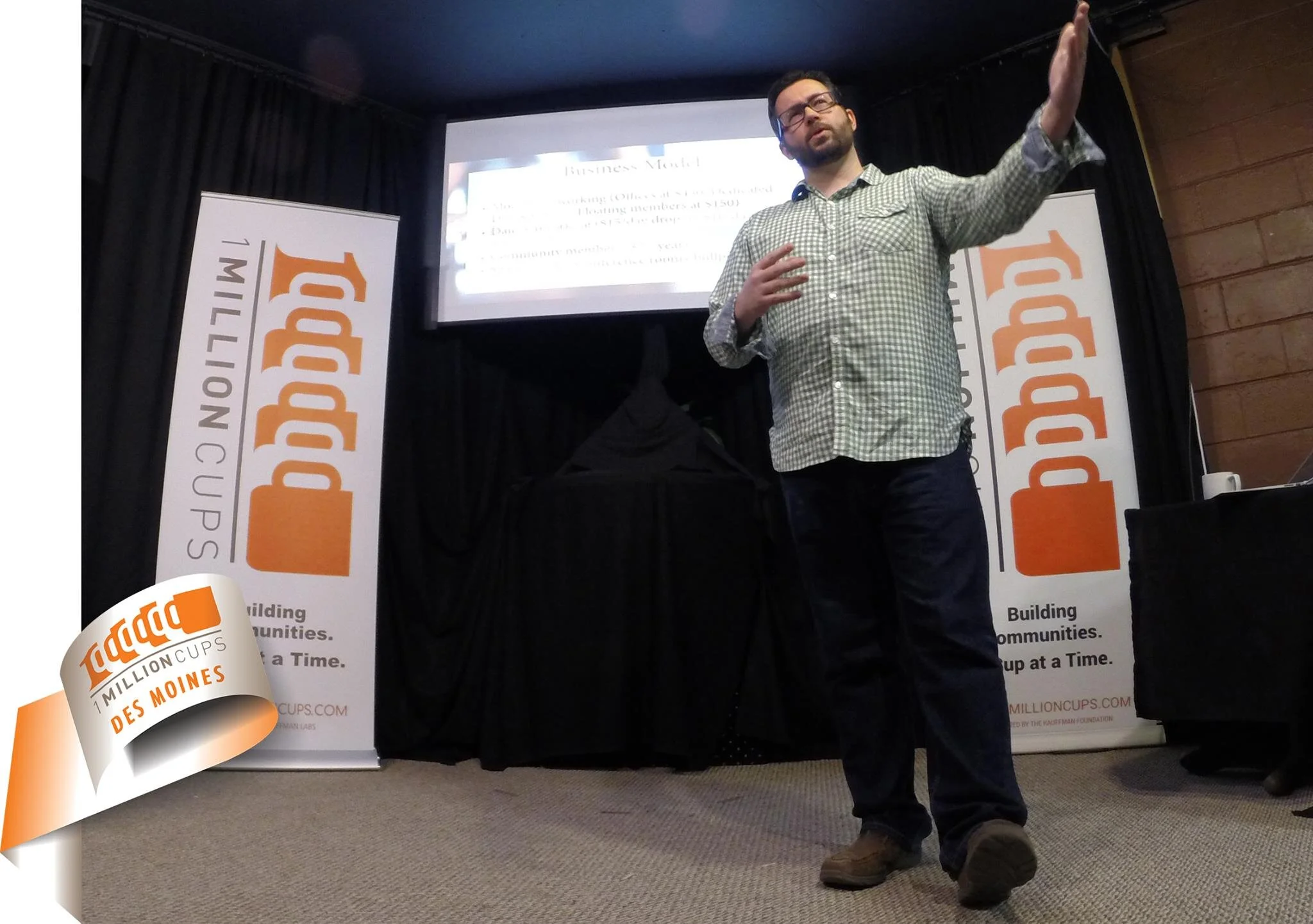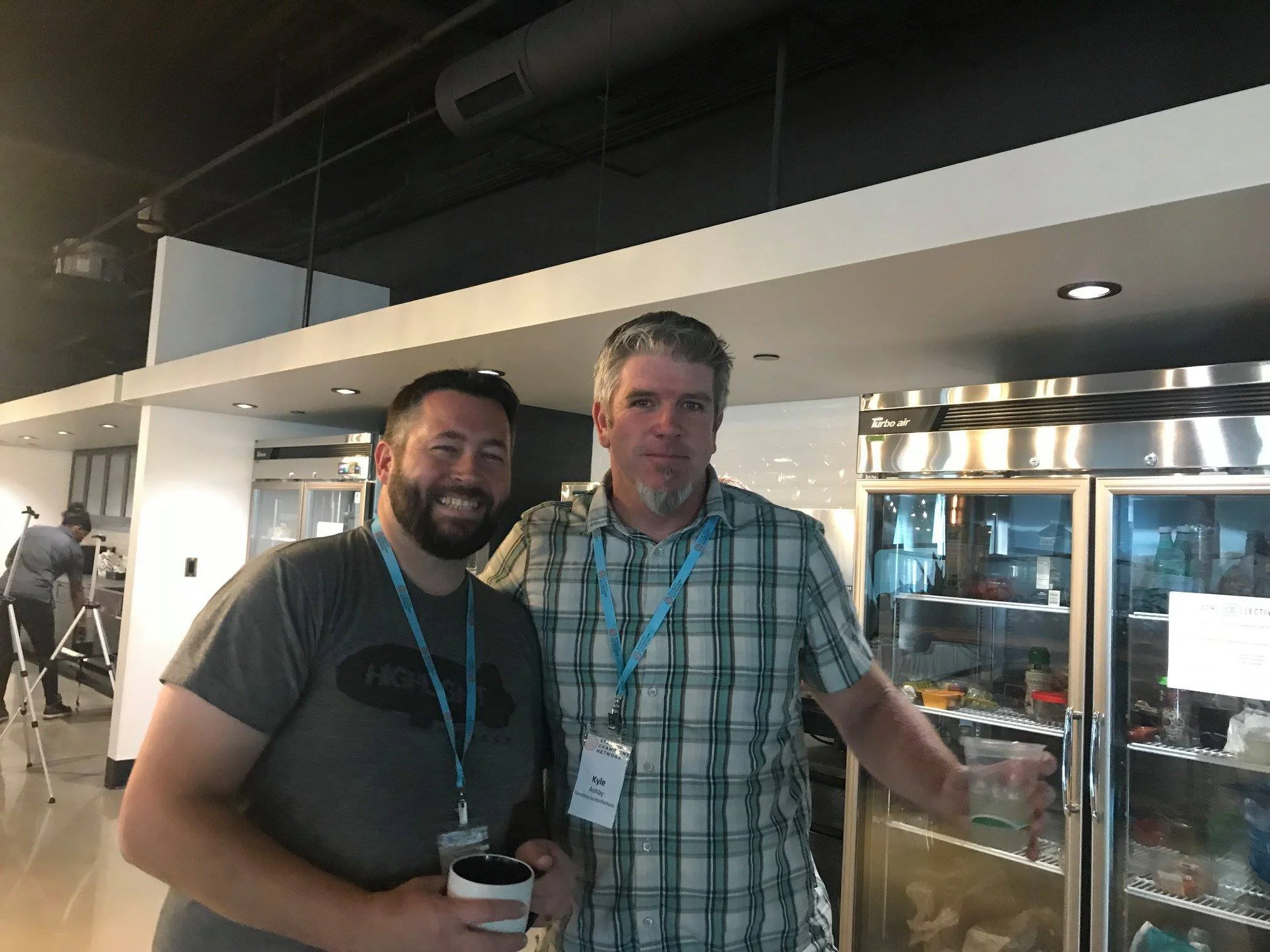Eight years ago, the entrepreneurship community in Des Moines, Iowa came to an inflection point. Startup City, the startup hub and incubator that had been built over the past few years, was at the end of its funding window and planning to dissolve. The legacy of its work lived on as its planned exit started a ripple effect in the community. Community members now realized how important startups and entrepreneurs were to the economy. The established business community, state and local governments, and economic development groups got together to have community discussions to start building infrastructure for an entrepreneurial ecosystem to thrive. One of those important pieces of infrastructure was Gravitate Coworking.
“Gravitate Coworking comes from the idea that every startup community needs an entrepreneurial center of gravity. ”
Leading up to that moment, Geoff Wood had been working in the unofficial role of community builder and storyteller, running conferences and making connections across the Midwest startup scene, first as the COO of entrepreneurial news blog Silicon Prairie News and later with his own consulting company Welch Avenue. In 2014, after Startup City made its exit, he too realized there was a hole that needed to be filled.
“I thought we needed a home base for our community. I had gone to a few community meetings and heard people say that what they were really looking for in Des Moines was low cost, high density workspace for startup companies and others who want to be around startups; an event space to host startup weekends, conferences, lunch and learns, etc.; and a front door to the community. So if someone was new to Des Moines and the startup scene, they had a place that they could physically go and ask questions and figure out how to get pointed on their way. Even if they had been here for a long time and were just ready to start something new, there needed to be a place to go to figure out how to start. I heard these needs so I wrote a blog post about it and said if I can get 40 members to sign up with me initially, I’ll take out a lease and start a coworking space. And that’s what happened. We went from me writing a blog post to opening the space in about three months in 2014 and have been off and running since,” says Geoff.
Geoff describes the original space as a “minimum viable coworking space.” It has since moved twice and is located downtown, four times the size, and was professionally designed by architects to meet the needs of the community. Gravitate has several hundred members and four locations: Downtown, Midtown (Des Moines suburbs), Jefferson (a rural community in northwest Iowa), and Cedar Falls.
Gravitate’s downtown location
Today, Gravitate delivers on that mission of “entrepreneurial center of gravity” in multiple ways. They’re the host venue for several accelerators including Techstars Iowa, the workspace home for several venture-backed startups and a hub of entrepreneurial community events and programming like 1 Million Cups. Geoff personally hosts a quarterly “Intro to the Startup Scene” presentation where he gives a high-level look at the people, programming and resources available to people getting started on their entrepreneurial journey in Iowa’s capital city.
Storytelling: Geoff’s Foray into Ecosystem Building
Geoff isn’t just the founder of a multi-site coworking and entrepreneurship hub, he’s a longtime storyteller who got started because he wanted to be a part of the startup community. After relocating back to Des Moines from Indianapolis in 2009 with a new MBA, Geoff was on the job hunt looking for a small tech company to call home for the next phase of his career. Rather than reaching out to apply, he took a different approach: storytelling.
“Writing is something I’ve always enjoyed so I decided to use it as a networking tool when I first got to Des Moines. I went to the first tech company I knew of: SmartyPig. I emailed the founder and set up an interview and then asked who else I should be writing about in the community. I did that for six months and covered 60-75 companies and entrepreneurs in Des Moines. I was able to network really quickly that way because I met everyone through that platform. My goal was just to find a place that I would plug into. What happened was the blog became the company,” explains Geoff.
Geoff joined forces with some startup advocates who had recently launched SiliconPrairieNews.com as a storytelling resource in Omaha and it became a regional publication.
“We all sat down in a coffee shop about six months in and decided we really had something here. We generated our revenue by putting on conferences like Big Omaha. The idea there was to build the community daily through the publication - which was free - but then the community would help us out through ticket sales or sponsorships for the conferences.”
Members of the Iowa Startup Community at Big Omaha 2010
Big Omaha and its sibling events in Des Moines and Kansas City were a BIG deal for the region, bringing in entrepreneurial speakers including the founders of Pinterest, Warby Parker and Reddit and partners like the Kauffman Foundation, Microsoft and Rackspace to experience and connect in these Midwest ecosystems. The idea was simple - and something that really carries through Geoff’s career as an ecosystem builder: be a loudspeaker for the region and tell its stories.
Over the next 4-5 years, Silicon Prairie News continued to grow and Geoff and the other founders eventually decided to go in different directions. The site is now run by different people but is still telling stories. Somewhere during that time of initial growth and ecosystem storytelling, the traditional local news media developed the tech bug, picking up on the need to tell the same stories.
“The Des Moines Register got really interested in what we were doing. They saw our coverage and brought on a tech reporter to write about startups and early stage tech. Then the local business weekly focused resources on that beat, too, and suddenly everyone was writing about the startup community in some phase. It was a really exciting time in our ecosystem,” says Geoff.
After Geoff left Silicon Prairie News, however, coverage of the Des Moines entrepreneurial community waned. At one point they didn’t have any storytelling going on in the community until sometime in late 2016 when Geoff was contacted by one of the first founders he’d written about - Ben Milne, founder of Dwolla (one of the most widely covered startups in Des Moines). He came to Geoff and said, “Remember that first story you wrote about Dwolla? Well, that was important in getting The Des Moines Register interested in writing about us. The Register coverage helped us reach national publications. Who’s doing that today? Who’s telling the stories of emerging Iowa companies in their earliest stages?”
Geoff responded, “Nobody probably.”
“Well, we need to do that. That’s a thing we need for our ecosystem,” replied Ben.
“When I hear things like, ‘Oh, yeah, someone should be doing that…’ I tend to be one of the people that does it. Probably for worse when you talk to my wife about the stress of all the things that we all as community builders take on in our lives.”
After that conversation, Ben and Geoff partnered to launch a new community publication: Clay & Milk. After a few iterations, Clay & Milk merged into the Gravitate organization and is staffed by a full time editor who focuses exclusively on telling a story about the statewide ecosystem every day.
“The lesson that I’ve learned is that our niche isn’t quite big enough to count on traditional media to value this thing that we care about so much. If we want to make sure the story of our community is told, someone within our community has to own up and tell it. That has been Clay & Milk for us and why we do it.”
Ecosystem Proud Moments
All of this backstory about the Des Moines ecosystem was leading to something beyond talking about Geoff and his accomplishments (which are huge). It brings us to a proud moment for the Des Moines ecosystem and why Geoff felt now was a great time to host SCN’s Fall Summit.
“This is the 10 year anniversary of what I think of as our “modern” startup ecosystem in Des Moines. Successful startups existed here prior to that but 2011 was the launch of Startup City and that felt like the mark where the broader community really came together to make startups a priority. We started to see big infrastructure to support startups being built. Gravitate would not exist had Startup City not preceded it. They put the pieces in place for the community to gel and prioritize the idea that the future of economic development can be building our own companies here.
Des Moines 1 Million Cups Chapter was the first chapter established after this initial event was launched in Kansas City
Here we are 10 years later and as I look around the ecosystem, all of the ecosystem builders here - especially the people who do it for a living - all of those people are new since that time. We’ve had this entire generational shift from the people who started the kindling 10 years ago. That’s succession. The fact that this can evolve and continue to grow and do it without it being one person’s idea or one person’s way. All of these people contributed early on and now other people are contributing and it’s still growing. It’s really a proud moment to think that if we made it 10 years we’ll probably make it 20 and 30 and this can just keep reinventing itself and adding to the community,” says Geoff.
That growth can be read about in Silicon Prairie News and Clay & Milk and it can be seen in the type of fundraising that happens regularly in the ecosystem.
“I remember in 2010, Dwolla raised a $1 million Series A round and they were literal rock stars in our community. There were meetups to debut their software with wall-to-wall people who just wanted to be a part of whatever it was that was happening. Now, when people raise $1 million, $5 million, $10 million, we don’t bat an eye. It is no longer a novel event to raise money here. We have local funds stepping up to lead and out-of-state funds coming in to join them. The fact is now when someone announces a $2.5 million Series A, it’s typically a blog post and not a party because it’s expected that you can raise from Iowa.”
Why Geoff is a Member of SCN
All of these projects, businesses, and hard work as a community builder has its highs and lows. And that’s why a support system of people who understand the work is key.
“Andy Stoll and Amanda West had been doing the same activities I was doing but in Cedar Rapids. They had heard me complain enough and commiserate about how hard it is to build community, how underappreciated you could be, and how tough it is to fund the work. They said ‘Hey, we’re working on a thing that’s actually a network of people just like us and would like to get your ideas.’ And I was like, sign me up! How do I get there? That was the Santa Barbara Summit in 2016.
Startup Champions Network Denver Summit
The Summits are the thing that I enjoy the most because of the networking. Not for networking sake, but being able to actually learn from people and develop relationships. This is an undefined industry and for most of us, we don’t get paid for the work we do. It’s almost a hobby but it's one that you do because you care and want to see your community thrive. You really need connections and support from others who are doing this. I feel like I have a lot of great friends I have met through SCN. I talk to other members regularly and have a network of people who do the same thing. I don’t know if I would have continued to do this work without that support.”
These stories and more will be shared in Des Moines October 12-14, as well as best practices and case studies around growth and ecosystem development in Des Moines. Join us!

